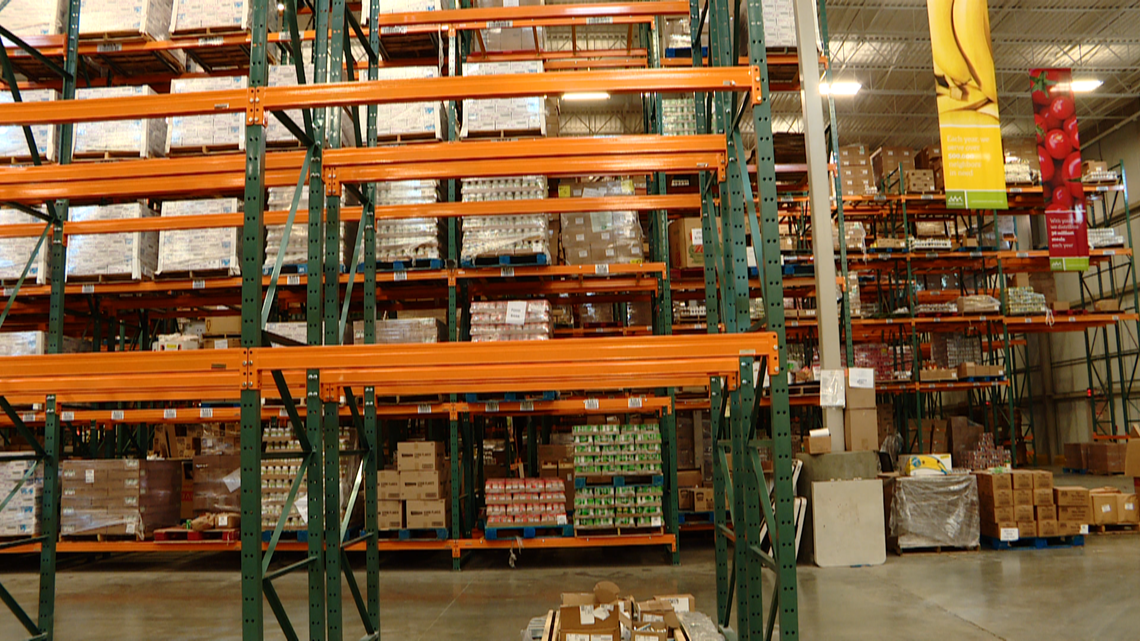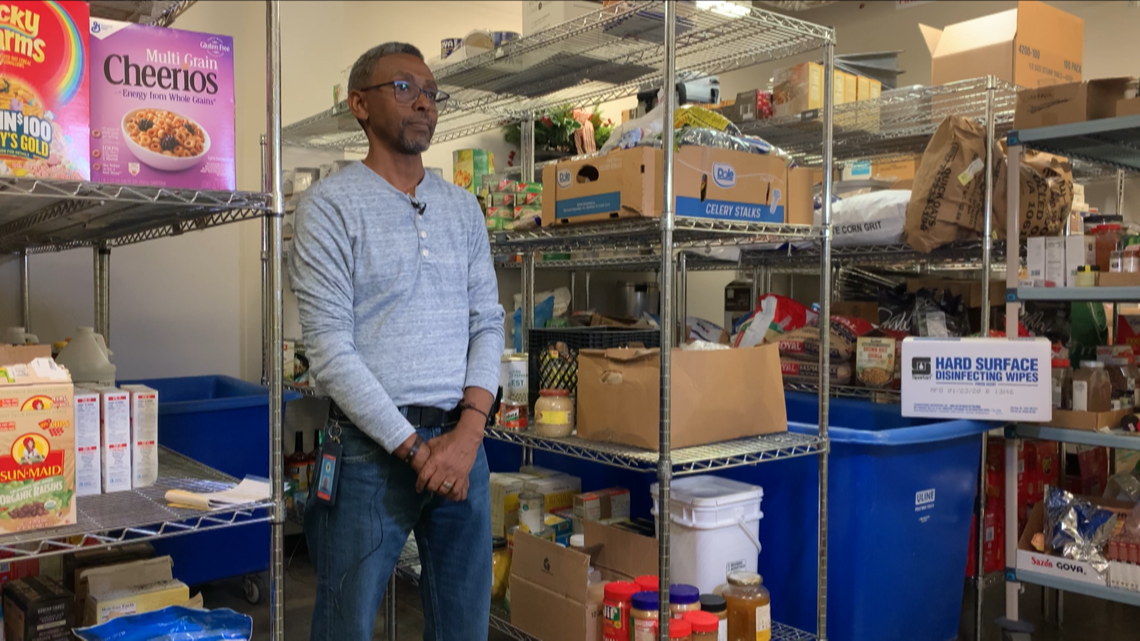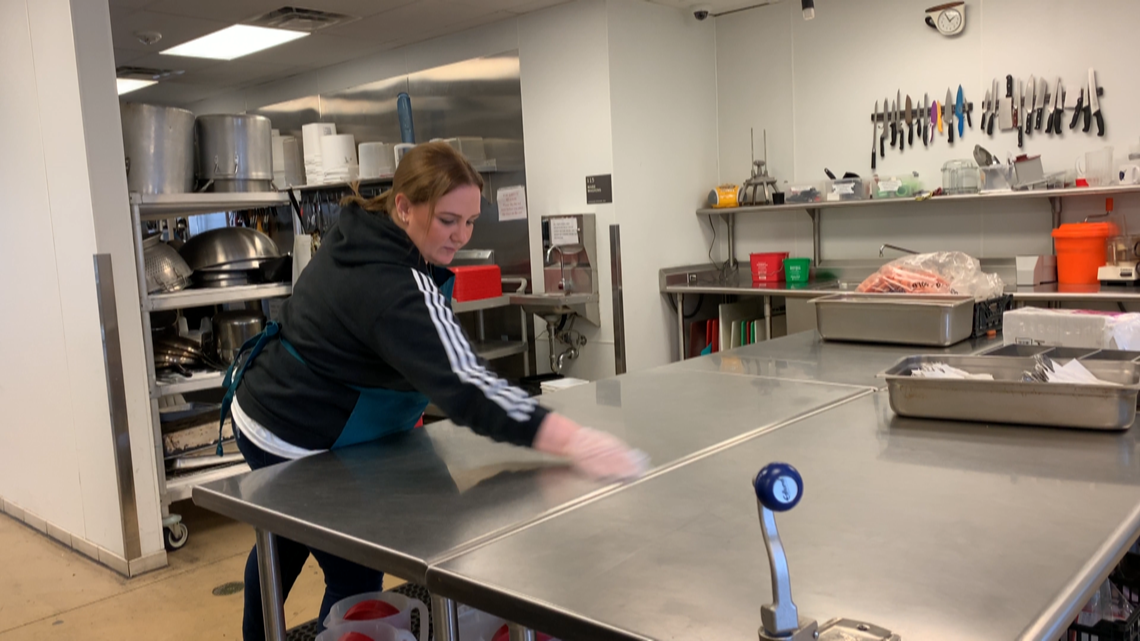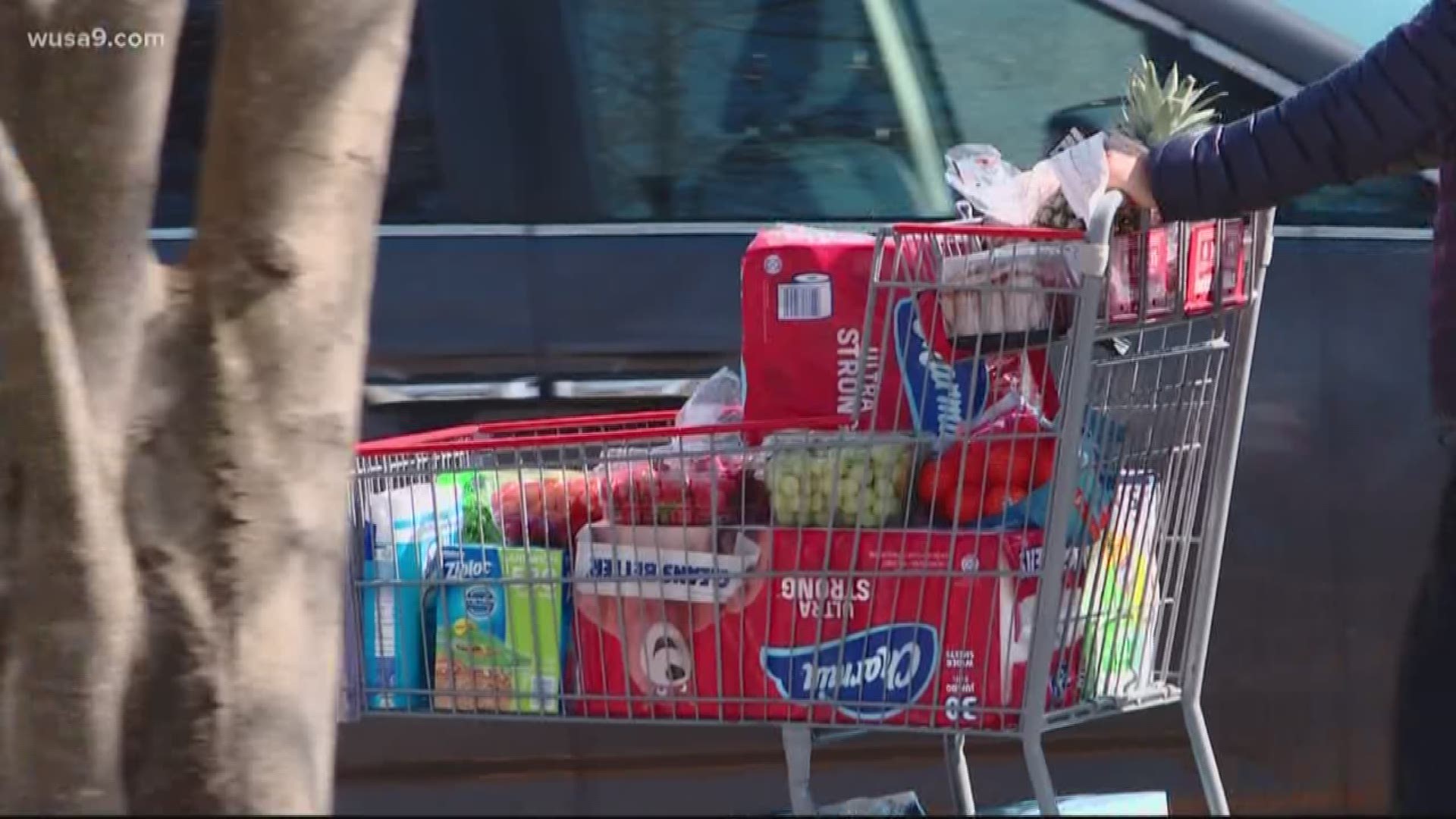WASHINGTON — Long lines at grocery stores and shelves left empty are a sign that people are preparing for COVID-19, as some local leaders have advised people to be prepared for the possibility of quarantining for up to 14 days.
While individuals prepare, local food shelters and the food bank that supplies those necessities are also stocking up on essentials.
"We've already ordered extra food so that we have that on hand, and we anticipate being able, in the next week or so, to serve up to 1,000 additional people, or existing clients with up to a week's more of a food," Capital Area Food Bank President and CEO Radha Muthiah said.
Muthiah said they are anticipating some disruptions and are planning accordingly. She said those disruptions fall into three categories: supply chain disruptions that make it harder for people to get food; a reduction in economic activity; and the possibility of finding it more difficult for people to access food.
"People will turn to the Capital Area Food Bank, so we've been planning and we stand ready to be able to support," Muthiah said. "Or if it gets to the situation with China, we all hope it doesn't, but if there is a situation of quarantine, then we will stand ready to be able to support with the food needs of those who are quarantined."


Muthiah said the food bank feeds about 400,000 food-insecure people around the region on a regular basis and are adding to that storage space.
"Unlike many of us who may have the ability to go to the store and stock up on a week or two weeks’ worth of supplies, these individuals don't have the ability to do that even for a day or two," Muthiah said. "So the heightened anxiety with looking at everyone else getting food for two weeks can just cause greater anxiety on their part as well."
Haile Gebregziabher, the Director of Operations at Shepard’s Table in Silver Spring, said his organization serves three meals a day to roughly 500 people.


He said they’re taking extra precautions, sanitizing and cleaning everything, as well as encouraging everyone to wash their hands if they come in or out of the building.


Gebregziabher said in addition to focusing on the cleaning aspect associated with COVID-19, they are also working on a game plan if the number of cases continues to rise.
"We always serve the guests in the dining room," Gebregziabher said. "Worst case scenario, we are getting to-go boxes, and we can pack for them and wheel them outside so people will eat, because they are very vulnerable and they depend on us. We're doing everything we could within our power to meet their needs."
Gebregziabher said in the more than 35 years they’ve been doing this, they have never missed serving a single dinner, and he doesn't anticipate that changing any time soon.
"We will make it happen."

